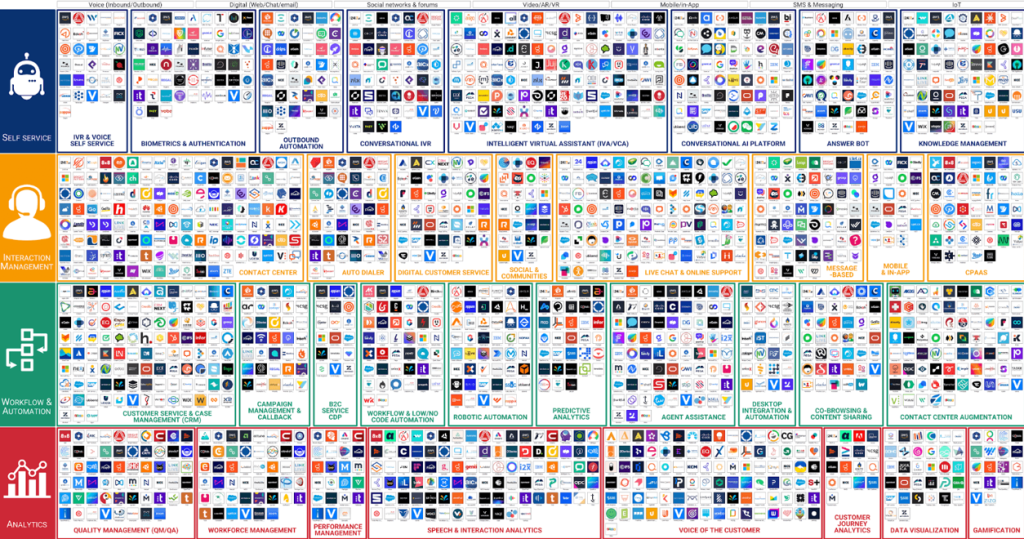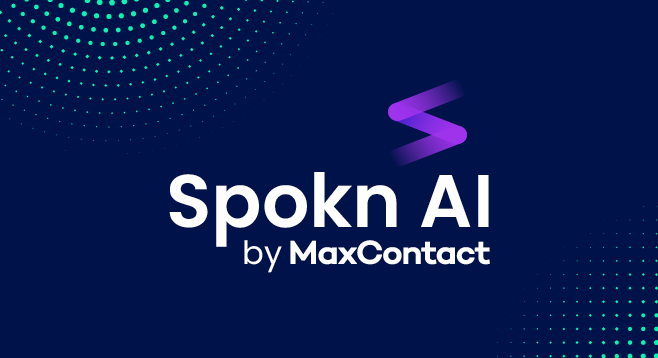Have you experienced software regret? You’re not alone.
75% of companies experienced software regret from purchases made over the last 5 years.
At an ‘Afterwork’ community event MaxContact’s CEO Ben Booth delivered an insightful talk on the challenges facing companies when purchasing software and implementing AI in their contact centres.
Drawing from his extensive experience in the industry and his involvement in over 500 contact centre implementations, Ben Booth shares valuable insights and advice for contact centre leaders.
Here are the highlights:
- 📉 75% of companies experience regret from software purchases, costing $29 billion.
- 💻 The SaaS industry is relatively new, leading to disconnects between software capabilities and business needs.
- 🤔 Many companies struggle with indecision in purchasing new technologies, leading to missed opportunities.
- 📊 Many businesses are still in the early majority phase of adopting technologies like AI.
🤖 It’s essential to take a balanced approach to implementing new technologies to avoid negative impacts.
The High Cost of Software Regret
75% of companies experienced software regret from purchases made over the last 5 years, equating to a staggering average cost of $29 billion. This highlights the importance of making informed decisions when selecting and implementing new technologies in the contact centre.
The Gap Between Promise and Reality
One of the primary reasons for software regret is the disconnect between what software can do and how it actually does it. Many solutions promise extensive capabilities but fall short in delivering out-of-the-box functionality. Ben Booth uses Salesforce as an example, noting that it requires significant customisation and ongoing maintenance to meet evolving business needs.
A complex Contact Centre Landscape = Indecision
The current landscape of contact centre technology is complex, with a wide range of options available. This abundance of choice can lead to indecision in the buying process, with many companies opting to do nothing rather than selecting a competitor.
As the industry undergoes a new evolution of technology, particularly with the rise of AI and machine learning, Ben Booth advises contact centre leaders to take a balanced approach to implementation. While there is a fear of missing out on the latest innovations, it’s essential to understand that market adoption takes time. Even with well-established technologies like cloud-based omnichannel solutions, many contact centres have yet to fully implement these capabilities.

As the industry undergoes a new evolution of technology, particularly with the rise of AI and machine learning, Booth advised contact centre leaders to take a balanced approach to implementation. While there is a fear of missing out on the latest innovations, it’s essential to understand that market adoption takes time. Even with well-established technologies like cloud-based omnichannel solutions, many contact centres have yet to fully implement these capabilities.
Unlocking the Value of Technology
Ben Booth stresses the importance of investing in technology that has clear business value and addresses specific pain points or bottlenecks within the contact centre. By unlocking the value of data and understanding where improvements are needed, leaders can make more informed decisions about which technologies to adopt and how to implement them effectively.
Creating a Safe Environment for Experimentation
When introducing new technologies like AI, it’s crucial to create a safe environment for experimentation. Ben Booth recommended explaining the challenges, goals, and vision of the business to staff and involving them in the problem-solving process. This approach can lead to better adoption and buy-in from employees, who may otherwise feel threatened by the prospect of being replaced by automation.
Looking Ahead: What are the Challenges and Considerations?
As Ben Booth talks about the future of the industry, he highlights potential challenges and considerations for contact centres implementing AI and other productivity tools.
These include:
- Vendor price increases: As the market matures, vendors may increase prices for their products and services.
- Data security and compliance: Ensuring data security and compliance is essential when implementing new technologies.
- Evolving features and capabilities: AI and other technologies are constantly evolving, so contact centres need to stay up-to-date on the latest developments.
Ultimately, Ben Booth emphasises the importance of viewing AI as a productivity tool rather than an agent replacement tool. By focusing on how these technologies can enhance the work of contact centre staff and improve overall performance, leaders can navigate the challenges of software purchases and AI implementation more effectively.
In conclusion, Ben Booth’s talk provides valuable insights for contact centre leaders grappling with the complexities of technology adoption.
By taking a balanced, data-driven approach and prioritising clear business value, leaders can avoid the pitfalls of software regret and harness the power of AI and other innovations to drive success in their contact centres.
Join the MaxContact Community to be notified about similar future events.

Creating a safe environment for experimentation is crucial when introducing new technologies like AI. Booth recommended explaining the challenges, goals, and vision of the business to staff and involving them in the problem-solving process. This approach can lead to better adoption and buy-in from employees, who may otherwise feel threatened by the prospect of being replaced by automation.
Looking ahead, Booth highlighted potential challenges and considerations for contact centres implementing AI and other productivity tools. These include the possibility of vendor price increases, the need for guardrails to ensure data security and compliance, and the ongoing evolution of features and capabilities as the technology matures.
Watch the full talk from Ben Booth, CEO of MaxContact:
Ultimately, Booth emphasised the importance of viewing AI as a productivity tool rather than an agent replacement tool. By focusing on how these technologies can enhance the work of contact centre staff and improve overall performance, leaders can navigate the challenges of software purchases and AI implementation more effectively.
In conclusion, Ben Booth’s talk at the Afterwork event provided valuable insights for contact centre leaders grappling with the complexities of technology adoption. By taking a balanced, data-driven approach and prioritising clear business value, leaders can avoid the pitfalls of software regret and harness the power of AI and other innovations to drive success in their contact centres. Join the MaxContact Community to be notified about similar future events.





